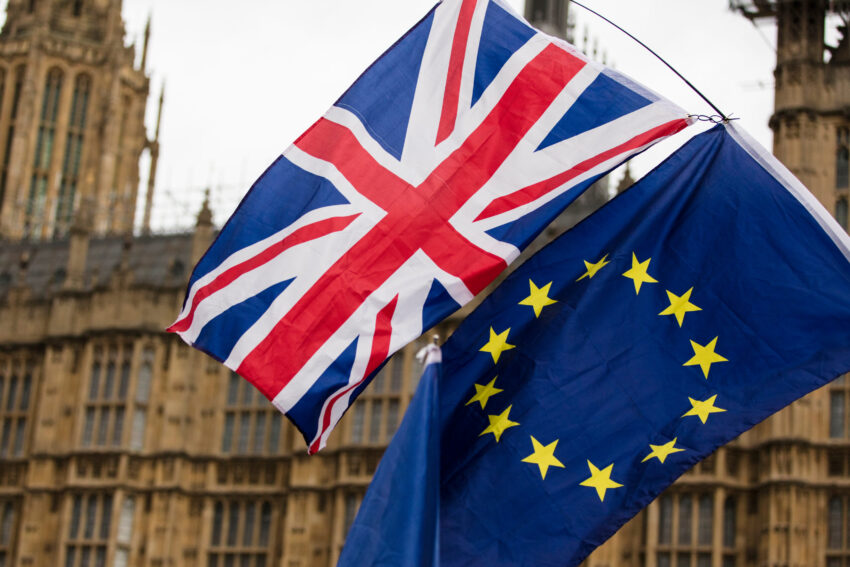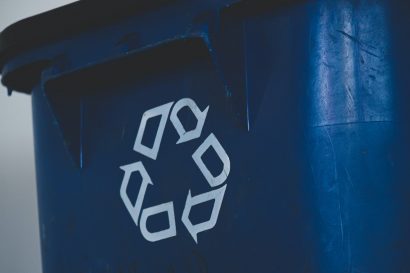AG INSIGHT | 24/01/2017
Time to turn the circular economy into practice

There is a compelling business case for both the EU and UK to rapidly improve the resource efficiency of its economy, argues Nick Molho, executive director of the Aldersgate Group.
There is a clear business case for improving the resource efficiency of the economy. Yet, this remains an area of policy that is often overlooked, misunderstood or lacking in substance. It is time for EU institutions and the UK government to give much more impetus to this agenda.
The Aldersgate Group published two reports this week, based on several business pilot projects, which shows that moving towards an economy that is more efficient with its use of resources would provide significant benefits to the EU and the UK.
The reports were based on an initiative called REBus, which piloted 26 projects with government organisations and businesses of all sizes in the UK and the Netherlands. The aim of REBus is to support organisations wanting to develop resource efficient business models and understand where regulatory barriers or a lack of incentives prevent businesses from making progress.
Greater resource efficiency offers real benefits
The projects ranged from SMEs like Ipower, installing small scale fuel cells to cut energy bills and carbon emissions in social housing, to the Dutch Ministry of Defence undertaking a textile recovery programme on one million kilos of military personnel clothing. Three years in, the projects have already delivered financial savings of €5.6m, reduced material consumption by over 62,500 tonnes and cut carbon emissions by under 2,000 tonnes. Given that most of the projects involve SMEs, this is a significant achievement.
An estimate from WRAP, one of the organisations involved in REBus, found that if the resource efficiency initiatives tested by these pilot projects were replicated throughout their respective economic sectors, this could deliver an increase in gross value added to the EU economy of up to €324bn by 2030 (up to €86bn for the UK).
Product standards are key
To make this happen, action is required on several fronts. First, given that 80% of a product’s environmental impact is determined at the design stage, introducing design standards that require products to be more durable, easier to repair and easier to disassemble is critical to improving the resource efficiency of the economy. Having these standards is also in the interest of consumers, who would benefit from better quality and longer lasting products.
In the EU, this means broadening the existing “Eco-Design” policy. This policy currently sets minimum energy efficiency standards for products. It should now require a broad range of products such as ICT and white goods to also comply with minimum resource efficiency criteria. Encouragingly, the European Commission has signalled its intention to start doing this as part of its Circular Economy Package.
As it prepares to leave the EU, the UK should also consider introducing such standards. It would be in the interest of its consumers (who won’t want to be sold lesser quality products than their EU counterparts) and its businesses (many of whom will have to abide by EU standards when selling goods on the Single Market) for these standards to be at least as good as what will be put in place in the EU.
Tackling the barriers to innovation
Second, supporting SMEs innovate by providing them with technical support and an easier access to funding will be essential. The REBus project provided technical support without which projects wouldn’t have happened. This included helping organisations develop business plans in a language they could understand, carrying out market research and navigating complex application processes to access affordable funding.
Support measures such as the Dutch Government’s “Green Deals” could help tackle some of these technical barriers. New funding models such as those piloted by Innovate UK, whereby loans are repaid with interest depending on the success of a project, could also boost SME innovation.
A bold fiscal policy is needed
Third, many businesses aiming to become more resource efficient find that fiscal regimes across Europe rarely incentivise the use of secondary materials or services (such as repair) that can help save on resources. One option going forward would be for the EU to use its upcoming Action Plan on VAT to provide flexibility to its member states to introduce lower VAT rates for resource efficient goods and services compared to less resource efficient alternatives. This is an option that the UK should also clearly consider as it leaves the EU and develops its own resource efficiency policy.
Better regulations, which do not classify a material as “waste” unless there is no safe alternative use for it, and public procurement rules which favour resource efficient businesses could also play a key role in stimulating greater market demand for resource efficient goods and services.
Time for action
There are still several technical, policy and regulatory barriers to moving towards a more “circular” economy. But the benefits of greater resource efficiency are clear and warrant much greater policy focus in the years to come. The EU has a clear opportunity to do so through its Circular Economy Package that is currently being considered by EU institutions. When it comes to the UK, the challenges associated with Brexit negotiations must not distract the government from the importance of developing an ambitious resource efficiency policy.


